Students caught using AI to complete their work were later caught using AI to write apologies to their professors.
Get Started for FREE
Sign up with Facebook Sign up with X
I don't have a Facebook or a X account


 Your new post is loading... Your new post is loading...
 Your new post is loading... Your new post is loading...
What is just-in-time, just-enough, and at-the-moment-of-need learning? How do self-tuning learning ecosystems offer the right support at the right time?
EDTECH@UTRGV's insight:
"In today's fast-paced, hybrid workplaces, employees don’t have the luxury of sitting through hours-long courses when what they really need is a two-minute video, a checklist, or a chatbot response. The learning paradigm has shifted from "just-in-case" to Just-in-Time (JIT), Just-Enough, and At-the-Moment-of-Need support."
What students considering entering the AI field should keep in mind when pursuing a college degree.
EDTECH@UTRGV's insight:
"[S]tudents should focus on programs that emphasize the fundamentals of AI rather than how to use certain AI tools."
A Virginia district strives to teach students that not all AI use amounts to 'cheating.'
"For technology adopters looking for the next big thing, “agentic AI” is the future. At least, that's what the marketing pitches and tech industry T-shirts say."
EDTECH@UTRGV's insight:
“They are not just tools to be operated or assistants waiting for instructions,... they behave like autonomous teammates, capable of executing multistep processes and adapting as they go.”
Why the future of AI in education depends on a new social contract that puts human connection before engagement.
EDTECH@UTRGV's insight:
"As we stand at this frontier, a critical question looms: are we building AI learning companions that we can trust?"
Colleges and universities that thrive in the era of artificial intelligence will be those that see AI not as a threat but as an opportunity to advance economic mobility through accessible, personalized education.
EDTECH@UTRGV's insight:
"We’re evolving and changing the way we deliver education to our students, remaining aligned with the world of work so our graduates can quickly reap the benefits of their investment in higher education."
Skills-first hiring is becoming a more widely adopted practice as employers seek talent from a more diverse pool.
EDTECH@UTRGV's insight:
"Skills-first hiring is gaining traction. Across industries, employers are rethinking job requirements, moving beyond degree-only models and opening doors to a broader, more diverse talent pool."
Conversations With Kevin Hogan: Education expert Carl Hooker discusses making artificial intelligence work both in and out of class.
EDTECH@UTRGV's insight:
"Despite widespread student adoption, schools remain divided on how to respond. While 85% of administrators recognize value in teaching students to use AI tools, and 55% of schools no longer block them on networks, many institutions still restrict access — often at teachers' request."
Punitive, fear-driven approaches to rule-making about artificial intelligence in higher education can deepen mistrust, stress and disconnection among students. Alternatively, there are opportunities for teachable moments.
EDTECH@UTRGV's insight:
"As some institutions and instructors respond to the boom of artificial intelligence with bans and automated detection tools, students are worried about being falsely accused of using AI."
From
openai
"Today, we’re beginning to pilot a new experience in a few regions that makes it easy for people to collaborate with each other—and with ChatGPT—in the same conversation. With group chats, you can bring friends, family, or coworkers into a shared space to plan, make decisions, or work through ideas together."
EDTECH@UTRGV's insight:
"Group chats make it possible to bring people, and ChatGPT, into the same conversation."
From
news
MIT Associate Professor Justin Reich is working to help k-12 educators by listening to and sharing their stories about AI in the classroom.
EDTECH@UTRGV's insight:
"Schools are also struggling to measure how student learning loss looks in the age of AI. “How does bypassing productive thinking with AI look in practice?” Reich asks. “If we think teachers provide content and context to support learning and students no longer perform the exercises housing the content and providing the context, that’s a serious problem.”"
A comprehensive guide to the skills, trends, and strategic shifts to master for successful Instructional Design in 2026.
EDTECH@UTRGV's insight:
"For Instructional Design in 2026, data analytics has become an indispensable tool for creating impactful learning experiences, and the field is experiencing explosive growth." |
This article explores how L&D teams can blend the speed of technology with the soul of human insight to design learning that truly connects.
EDTECH@UTRGV's insight:
"What used to take weeks of scripting, storyboarding, and slide design can now happen before your second cup of coffee. Speed is up. Costs are down. But the real question in 2025 isn't how fast we can create courses, it's how human they still feel."
How will the technology landscape in higher education change in the coming year? We're inviting our readership to weigh in with their predictions, wishes, or worries for 2026.
From
uxdesign
"How do you develop the judgment to decide what software is worth building when AI makes building it faster and cheaper? This article explores how to systematically strengthen discovery judgment, whether you’re building solo or as a team."
EDTECH@UTRGV's insight:
"[J]udgment doesn’t develop through better frameworks. It develops through vulnerability. When you admit “I was wrong about this assumption” without fear, when you kill ideas you love because evidence doesn’t support them, when you pivot after publicly committing to a direction — that’s when judgment grows."
Generative artificial intelligence (AI) can transform higher education by enabling guided engagement at scale, fostering active and dialogic learning,
EDTECH@UTRGV's insight:
"AI exposes the longstanding problem with traditional assessment practices: They make earning a grade, not actual learning, the measure of success for students."
A new survey by the plagiarism-detection firm Copyleaks shows that nearly all students have used AI at least once for their coursework and a majority are using it more than ever.
EDTECH@UTRGV's insight:
"Ninety percent of students reported having used AI for academic purposes at least once. The most common uses named were brainstorming, drafting outlines, generating initial drafts, paraphrasing their work and summarizing readings."
Colleges and universities are addressing AI use with a patchwork of policies, with many professors setting their own rules, leaving both students and instructors unsure where appropriate AI use ends and cheating begins.
EDTECH@UTRGV's insight:
"It can almost create a culture of paranoia for students who are living in constant fear of being called out for possible AI use, when they're trying their best not to"
(I)f you’re preparing young people for this new style of play, you’ve got to prepare them differently...the game has changed
EDTECH@UTRGV's insight:
"Humans will be valued for their ability to coordinate with others, collaborate with others, to pursue common purpose, to solve common challenges. In short, to work together in teams to solve real, complex problems."
There’s a growing push to use AI to teach faster. These tools are fast, but shallow. They fail to capture the nuance, care and complexity that deep learning demands.
EDTECH@UTRGV's insight:
"Education isn’t a technical output; it’s a human process in which teachers invite students to ask hard questions and learn how to think, not just what to think"
Discover three AI teammate roles—Tasker, Draftsmith, and Facilitator—to help students build AI fluency and apply responsible use in learning.
EDTECH@UTRGV's insight:
"We need to steer students away from extremes of either refusing to use AI at all or letting it rob them of learning. By distinguishing the roles of Tasker, Draftsmith, and Facilitator, we clarify our expectations of students. More importantly, we help them become more deliberate in their approach, preparing them to be AI-fluent. "
From
uxdesign
"A while back, I captured this provocation on LinkedIn by Darren Hood, which got me thinking. What does it take to 'Let Designers think'? Thinking is the value we bring. Let's discuss more ways to carve out 'thinking' time."
EDTECH@UTRGV's insight:
"[T]here remains a gap between “design thinking” as designers practice it and how companies implement 'design thinking.' But regardless, there is still an impulse among design practitioners to 'think'. Let’s quickly review how we got here."
""Artificial intelligence is becoming a daily home and work companion. It’s reshaping industries, fueling demand for new skills and redefining how people make decisions, learn and live.
EDTECH@UTRGV's insight:
"96% agree that agentic AI innovation, exploration and adoption will continue at lightning speed in 2026"
AI is rapidly transforming classrooms, yet without a coherent framework connecting AI, EdTech, and neuroscience, there are significant risks.
EDTECH@UTRGV's insight:
"Without a coherent approach that connects neuroscience with EdTech and AI, we risk designing systems that optimize for short-term technological efficiency and long-term human problems." |





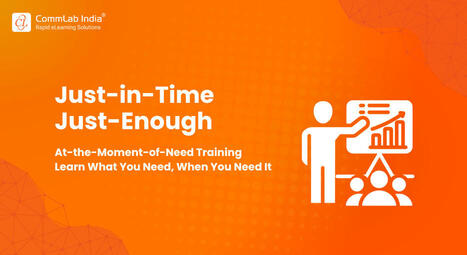
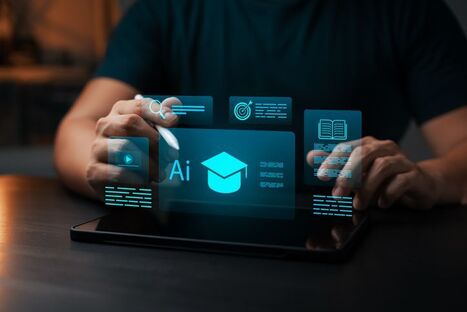
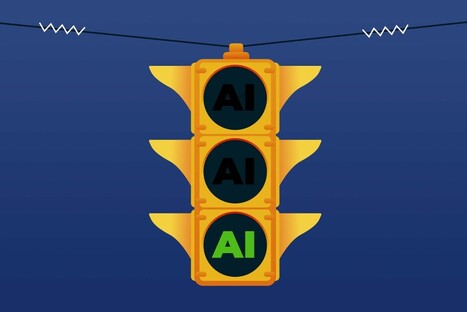










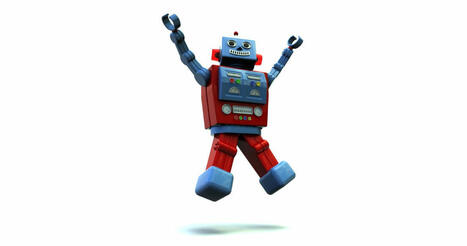



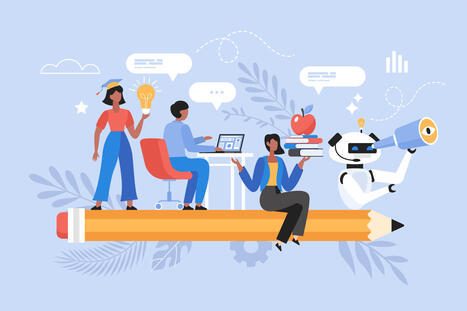
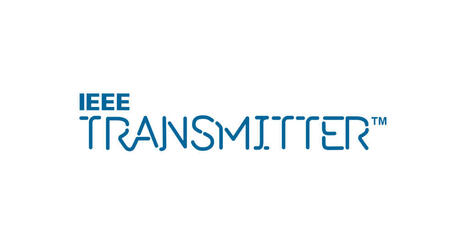






"[P]rofessors at University of Illinois Urbana-Champaign noticed that apologies shared by students, after they had been caught cheating by using artificial intelligence tools, had nearly identical language."